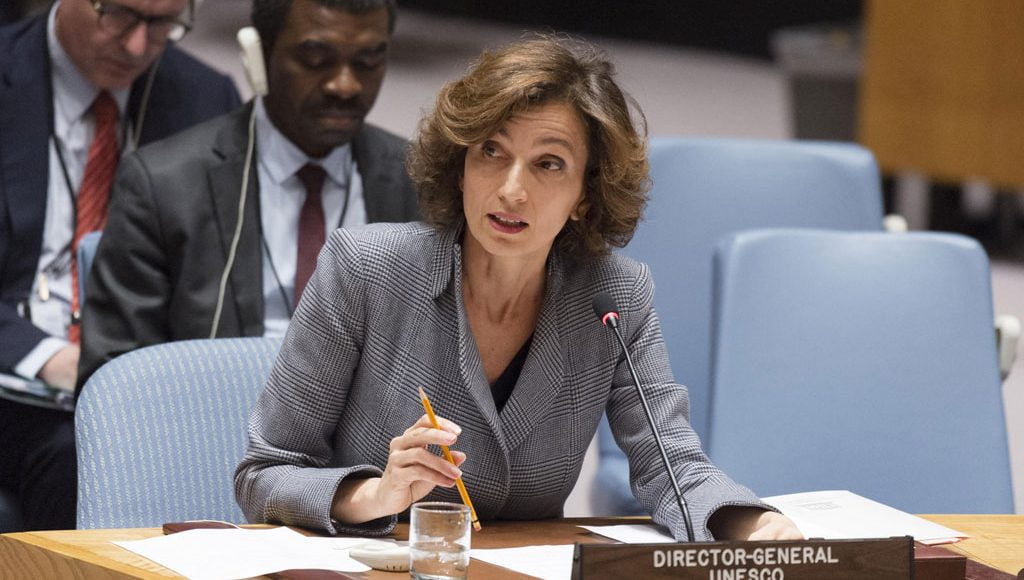Security Council hears calls for ‘all of UN’ approach to stop destruction, smuggling of cultural heritage
The United Nations Security Council on Wednesday focused its attention on global efforts to stop the traffic in and destruction of cultural property, with the head of the UN Educational, Scientific, and Cultural Organization (UNESCO) laying out steps to protect cultural heritage and ensure that it can serve “as a source of belonging and peace for all people in times of conflict.”
In her briefing, newly-appointed UNESCO Director-General Audrey Azoulay spotlighted the Secretary-General’s first report on the adoption by the Council of resolution 2347 (2017), which, among others, condemned the destruction of cultural heritage and the looting of cultural property.
The landmark text also encouraged Member States to take preventive measures to safeguard cultural property in the context of armed conflict and “take appropriate steps to prevent and counter the illicit trade and trafficking in cultural property and other items of archaeological, historical, cultural, rare scientific, and religious importance originating from armed conflict areas, notably from terrorist groups.”
“The adoption of resolution 2347 (2017) represents a major breakthrough, and it testifies to a new awareness on the importance of culture to respond to conflicts, to prevent radicalization and fight violent extremism,” Ms. Azoulay told the Council, noting that she has been encouraged by Member States’ strong actions to implement it and other Council measures that together provide key aspects responding against terror and hatred.
“In a very short span of time, 29 Member States shared information on new actions taken to protect cultural heritage, strengthening tools and training of specialized personnel, reinforcing international cooperation and information sharing,” she stated, mentioning some notable initiatives underway in several countries.
While calling these “positive signals of deep change,” Ms. Azoulay added: “We need to do more.”
The UN cultural agency chief pointed out that of the 82 UNESCO World Heritage sites in the Arab region, 17 are on the List of World Heritage in Danger due to armed conflict.
“Over 100 cultural heritage sites across Iraq have been damaged,” she explained. “All six Syrian World Heritage sites have been severely affected, including Palmyra, and the fabled city of Aleppo, one of the oldest cities in the world, now reduced to rubble.”
Ms. Azoulay underscored that the UN response must step up efforts in several key areas that encompassed raising awareness of the resolution to strengthen its implementation by all Member States; facilitating data collection and information sharing, on trafficking routes, on damage assessment; and training peacekeepers in the protection of cultural heritage and integrate this issue into peacekeeping mandates and missions.
“In all this, I pledge today once again UNESCO’s determination to support Member States with the necessary tools and policy advice,” she concluded.


